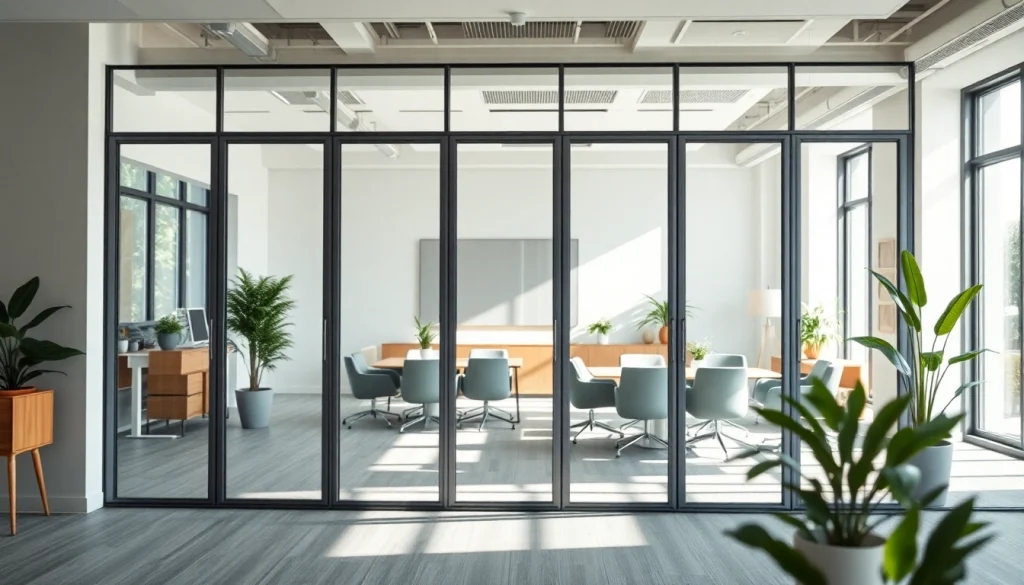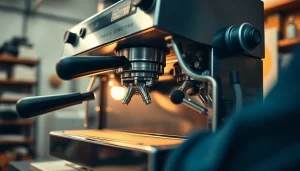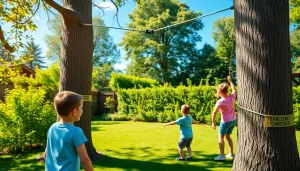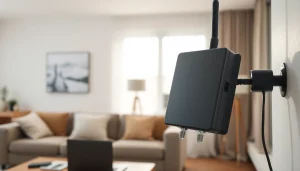
Introduction to Folding Partition Wall Solutions
In the ever-evolving landscape of architecture and interior design, maximizing usable space has become a top priority for both residential and commercial environments. One of the most innovative solutions for creating flexible spaces is the Folding Partition Wall. These versatile structures allow for the seamless reconfiguration of spaces without the need for permanent construction. By employing folding partition walls, businesses and homeowners alike can ensure their environments remain adaptable to changing needs.
What is a Folding Partition Wall?
A folding partition wall is a movable wall system designed to quickly and efficiently segment spaces. Unlike traditional walls, which are rigid and fixed, folding partitions can be opened or closed as needed, transforming a large room into multiple smaller areas or vice versa. These walls can be constructed from various materials such as wood, metal, or glass, providing options for both durability and aesthetic appeal.
Advantages of Folding Partition Walls
- Space Flexibility: Folding partition walls can create versatile layouts, allowing for different room configurations depending on the activity or event.
- Cost-Effective: Compared to constructing permanent walls, folding partitions often result in significant cost savings, providing an economically viable solution for space management.
- Quick Installation and Removal: The installation process for folding partition walls is generally straightforward, requiring minimal construction work, making it easy to reconfigure spaces as necessary.
- Enhanced Acoustics: Many folding partition walls are designed with sound-proofing features, making them suitable for environments where noise control is essential.
- Aesthetic Options: Available in various designs, colors, and finishes, folding partitions can complement interior decor while serving a functional purpose.
Common Uses for Folding Partition Walls
Folding partition walls are used in a multitude of settings, including:
- Office Spaces: Businesses frequently use folding walls to create private meeting rooms or collaborative workspaces, which can be adjusted based on the number of employees present.
- Educational Institutions: Classrooms can be adapted to accommodate different teaching styles or group sizes through the use of folding partitions.
- Event Venues: Conference centers and banquet halls utilize folding walls to adapt spaces for various events, from large gatherings to intimate settings.
- Hotels and Hospitality: Hotels often use folding partitions to optimize their function rooms, allowing for diverse configurations based on guest needs.
- Residential Applications: Homeowners can use folding partitions to create private areas in open floor plans or to divide rooms for additional functionality.
Key Features of Folding Partition Walls
When considering folding partition walls, understanding their key features is crucial for making the best choice for your specific needs.
Acoustic Performance and Sound Control
One of the paramount considerations in any environment that requires privacy and focus is sound control. Folding partition walls are engineered to provide excellent acoustic performance, minimizing noise transmission between spaces. This is particularly critical in settings such as:
- Offices: Noise can be a significant distraction, so using folding walls that are sound-proofed ensures a more productive work environment.
- Conference Rooms: For meetings and presentations, a quiet space is essential to maintain professionalism and engagement.
- Classrooms: As students group and engage in discussions, it becomes necessary to manage sound levels for the benefit of all learners.
Design Options and Customization
Folding partition walls come in various designs, offering customization options that allow you to tailor them to fit specific aesthetic requirements. Manufacturers often provide:
- Color and Material Choices: Selection from a myriad of finishes, including wood veneers, laminates, or glass, enables seamless integration with existing themes.
- Panel Sizes and Configurations: Different panel sizes allow for tailored solutions no matter the dimension of the space being divided.
- Branding Opportunities: Businesses can incorporate logos or colors into the design, creating a professional and cohesive appearance in corporate spaces.
Material Choices for Durability
Durability is critical for any partition solution, especially in high-traffic areas. Folding partition walls can be made from a range of materials, including:
- Engineered Wood: Provides strength and stability, along with an upscale appearance.
- Aluminum Frames: Lightweight yet robust, suitable for large openings while resisting warping.
- Glass Panels: Offer a modern aesthetic and enable natural light flow while maintaining acoustic integrity.
Installation and Maintenance of Folding Partition Walls
To maximize the efficiency and longevity of folding partition walls, understanding the installation process and maintenance requirements is essential.
First Steps in Installing a Folding Partition Wall
Installing a folding partition wall begins with careful planning and measurement. Here are key steps to follow:
- Assess the Space: Define how the space will be used and where the partition will be installed.
- Choose the Wall Type: Decide between options like operable partitions or more acoustic-focused designs based on your specific requirements.
- Professional Installation: While some may attempt a DIY approach, hiring a professional installer is typically advisable to ensure correct setup and operation.
Regular Maintenance Tips for Longevity
To keep folding partition walls in optimal condition:
- Regular Cleaning: Dust and clean surfaces regularly to avoid build-up that can affect functionality.
- Check Hardware: Periodically examine rails, locks, and hinges to ensure everything is operating smoothly.
- Assess Acoustic Seals: Inspect sound seals for any damage or wear to maintain soundproof quality.
When to Call a Professional Installer
Certain situations may warrant professional assistance, including:
- Complex Installations: If the project involves multiple walls or advanced configurations.
- Worn Components: If existing walls show signs of damage, having an expert evaluate and repair is a good practice to prevent further issues.
- After Renovations: Whenever a redesign or remodel is undertaken, consulting a professional ensures that new installations align with existing features correctly.
Comparing Folding Partition Walls with Other Partition Solutions
Understanding how folding partition walls compare to other solutions can assist in making informed decisions.
Folding Partition Wall vs. Traditional Walls
Folding partition walls offer significant advantages over traditional walls, including:
- Flexibility: Unlike fixed walls, folding solutions can be adjusted or removed, allowing for versatile space usage.
- Cost: Reduced construction costs for installation and maintenance compared to building permanent structures.
- Time: Quicker installation and less disruption to daily operations.
Folding versus Sliding Partition Systems
While both systems serve similar purposes, they have distinct characteristics:
- Operational Method: Folding systems can collapse and stack away, where sliding systems may consume more room along their tracks.
- Design Variety: Folding partitions offer a broader range of aesthetic choices and acoustic options.
- Cost Efficiency: Folding partitions may be more cost-effective due to lower production and installation costs.
Cost-Effectiveness of Folding Partition Walls
Cost is a significant factor for any project. When assessing the cost-effectiveness of folding partition walls, consider:
- Initial Investment: The upfront costs can be lower than constructing new walls or major renovations.
- Long-Term Savings: Their adaptability can reduce future expenses related to redesigning spaces, providing a return on investment over time.
- Reduced Downtime: Quick setup and versatility mean less disruption and downtime for businesses.
Real-World Applications and Case Studies
To illustrate the versatility of folding partition walls, we can explore various real-world applications and case studies.
Folding Partition Wall in Commercial Spaces
In a corporate office in New York, a company utilized folding partition walls to create multipurpose spaces. By enabling flexible meeting rooms, they were able to adapt their layout as the team size changed, which resulted in improved collaboration and productivity. With an initial investment in high-quality soundproofing partitions, they effectively eliminated noise disruption in the workplace.
Home Use of Folding Partition Walls
In a modern Urban home, homeowners utilized folding partition walls to separate their living space from a home office. This brought greater privacy and functionality, providing a clean and logical separation between work and home life. Custom finishes on the panels added an elegant touch to their decor, proving that functionality can coexist with aesthetic value.
Innovative Solutions in Event Spaces
In a renowned convention center in Chicago, folding partition walls were installed to maximize the use of their large halls. They could quickly change the configuration to accommodate various events, from trade shows to intimate workshops. This adaptability allowed the convention center to serve higher client needs, leading to increased bookings and revenue generation.
Conclusion
Folding partition walls are more than just practical solutions; they embody the principles of modern design, flexibility, and functionality. Whether for a bustling office environment, a dynamic classroom, or a cozy home setting, these walls provoke innovative uses of space. By considering the various features, benefits, and real-world applications outlined in this article, individuals and businesses can confidently take the next steps toward optimizing their environments with the strategic implementation of folding partition walls.





